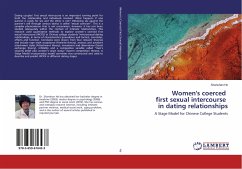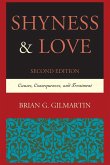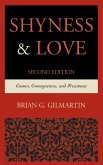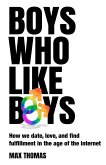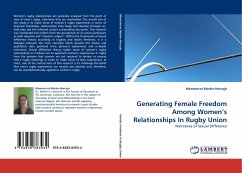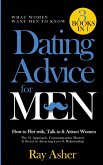Dating couples' first sexual intercourse is an important turning point for both the relationship and individuals involved. What happens if one partner is ready for sex and the other is not? Obtaining sex against the partner's will through various tactics is called "sexual coercion". This is a complex phenomenon that is not uncommon; however, it has not been studied adequately within the context of intimate relationships. This research used quantitative methods to explore women's coerced first sexual intercourse (WCFSI) in Chinese college students' heterosexual dating relationships, in terms of characteristics (prevalence and tactics), correlates, effects and function. Correlates were drawn from four relevant theories and include rape myth acceptance (Feminist theory), anxious and avoidant attachment styles (Attachment theory), investment and alternatives (Social exchange theory), infidelity and a compositive variable called "men's virginity belief plus women's virgin status" (Sperm competition theory). A Stage Model incorporating tested correlates was constructed and used to describe and predict WCFSI in different dating stages.
Bitte wählen Sie Ihr Anliegen aus.
Rechnungen
Retourenschein anfordern
Bestellstatus
Storno

